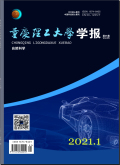重庆理工大学学报2024,Vol.38Issue(11):1-10,10.DOI:10.3969/j.issn.1674-8425(z).2024.06.001
基于充电行为电量规划的自适应能量管理策略
Adaptive energy management strategy based on charging behavior and energy planning
摘要
Abstract
To enhance the fuel efficiency of plug-in hybrid electric vehicles (PHEV ),this paper takes parallel PHEVs as research object and proposes an adaptive energy management strategy based on charging behavior,energy planning,and the equivalent fuel consumption minimization strategy (ECMS).First,a set of combined operating conditions encompassing various work cycles is constructed.Second,an analysis of charging behavior is conducted based on driver-specific characteristics such as charging frequency,charging upper limit,and discharge lower limit.Offline simulation data on battery consumption and fuel consumption under the ECMS for four distinct operating conditions are then obtained.Finally,SOC trajectory planning is performed based on driver charging behavior and offline data.Our findings indicate that,with initial battery SOC values of 0.9 and 0.6 respectively,the proposed energy management strategy improves vehicle fuel economy by 7.87% and 13.1% compared to the ECMS solely based on battery consumption maintenance.关键词
混合动力汽车/能量管理策略/电量规划/等效燃油消耗最小策略/充电行为特征Key words
hybrid electric vehicle/energy management strategy/energy planning/equivalent fuel consumption minimization strategy/charging behavior characteristics分类
交通工程引用本文复制引用
汪少华,郑允祥,施德华..基于充电行为电量规划的自适应能量管理策略[J].重庆理工大学学报,2024,38(11):1-10,10.基金项目
中国博士后科学基金项目(2023M731444) (2023M731444)
镇江市重点研发计划(GY2021001) (GY2021001)

